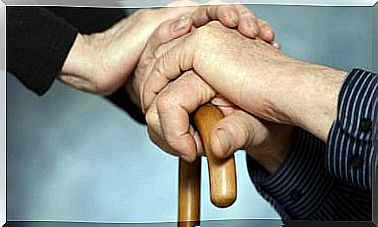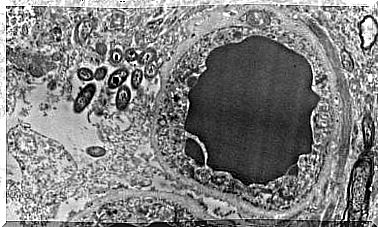The Foreign Accent Syndrome: Symptoms, Causes And Treatment

What would you think if you woke up one day speaking your mother tongue with the accent of another country? You would be suffering from what scientists call
Foreign accent syndrome is a rare neurological speech disorder documented in no more than twenty specific studies.
As a consequence of brain damage, mainly subcortical, the patient’s speech acquires a strange sound to native listeners. As the person cannot avoid this strange accent, and given its sudden onset, this disorder can generate a sense of loss of identity.
Symptoms may persist for months or years or disappear spontaneously or progressively. In a smaller number of cases, it appears briefly in patients with psychiatric disorders, schizophrenia, and conversion disorder.
Furthermore, many of those affected do not recognize that their accent has changed and are surprised when others point out that it has.

What are the symptoms of foreign accent syndrome?
This syndrome is clinically characterized by deficits:
- Segment : greater change in vowels than consonants. Change in vowel pronunciation time – in some patients it is shorter, in others it is longer. In consonants there are changes and errors in pronunciation.
- Prosodic : rhythm and intonation in words and phrases decrease in time between syllable and syllable, insertion of vowels, poor transition between word and word. Inverting the pitch of a sentence.
The main difficulties presented are:
- Changes in grammatical, articular and prosodic elements, without manifesting difficulties in understanding and expressing language and without phonetic deformations.
- Lack of verbal fluency appears as in aphasias and apraxias. However, unlike these alterations, the patient’s speech does not seem pathological, but rather strange.
Although there is no evidence of changes in functionality in everyday life, the emotional implication that this disorder has often leads to the appearance of adverse psychosocial consequences in the lives of these patients. This has been described in different studies.
Causes
It is an unforeseen language disorder that alters the language pattern of the native language, so that the patient, their families and the therapist perceive a dialect that is different from their native language.
Among the main etiologies related to this syndrome are strokes, craniocerebral traumas, which affect areas related to the production and expression of language, in addition to other pathologies, such as multiple sclerosis, brain tumors or anesthesia, among other causes.
As mentioned earlier, the foreign accent syndrome can persist for months or years or disappear spontaneously or progressively.
However, there are people in which it becomes chronic, requiring cognitive and speech therapies, as this disease can generate a great psychological impact on the affected person. The person realizes that time passes and he cannot regain his true voice and sometimes even remember it.

Until now, the most common treatment in these cases is the application of therapies and language techniques that allow those affected to recover, if not fully, in part, their diction from before the onset of the syndrome.
In addition, accent reduction techniques are used and the patient learns to move the lips or jaw in a more appropriate way while speaking.
In 2010, scientists at the University of Malaga combined these rehabilitation exercises with the prescription of the drug donepezil, commonly used to treat Alzheimer’s disease.
Thanks to this joint treatment, “very visible” recovery symptoms were observed in a Spanish patient affected by the disease. Other techniques may include: masked auditory feedback, delayed auditory feedback, and frequency shift auditory feedback.









